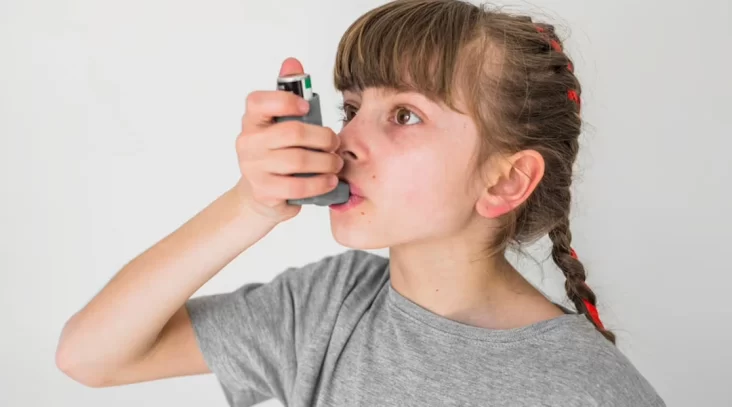One of the most horrifying images for a parent is to see their child struggling to breathe because of asthma. You are aware that you want to do all in your power to end his or her pain, but all you can do is take precautions to limit its impact. Yes, there is no cure for asthma. In India, 25% of people experience allergic reactions, and 5% of those people develop asthma as a result of their allergies. On this world asthma day, we discuss some tips to manage childhood asthma in this article.
Asthma is described as “a respiratory condition marked by attacks of spasm in the bronchi of the lungs, causing difficulty in breathing.” Because the tubes that carry air to the lungs enlarge, asthmatics have trouble breathing. A trigger for asthma (an allergen) that causes the airway to swell up causes this response to occur.
Asthma triggers may vary from person to person. Some of the more typical ones are dust, pollen, pollution from automobiles, animal dander, specific odours like the burning of fuel and petrol, and peeling paint. Asthma episodes have also been linked to certain medications like aspirin and other NSAIDs.
Asthma may run in families. 25 genes have thus far been linked to asthma in six or more distinct groups. Consult your child’s doctor if they notice any asthma symptoms or if anybody in your household has allergies or asthma.
It might be challenging to determine whether a youngster has asthma. A test that gauges the amount of air entering and leaving the lungs is often used to diagnose asthma. Preschoolers and younger kids might not be able to successfully perform the airflow test, which involves blowing quite forcefully into a tube. Parents must be on the lookout for signs because youngsters are unable to express their feelings. Let’s look at some guidelines parents should adhere to in order to properly care for their children who have asthma.
Here are some tips to manage childhood asthma on world asthma day:
Complete knowledge of Asthma
You must read as much as you can to learn as much as you can about asthma. Ask questions about asthma on forums, blogs, and other online spaces. To take proper care of your child, you must be fully knowledgeable about it.
Triggers of your child
An asthma attack can be brought on by a variety of different causes for every sufferer. To identify your child’s triggers and how to assist him or her avoid or coping with them, you must be highly perceptive and work with your child’s doctor. If everything else fails, there are medications available such as nasal sprays, allergy injections, and antihistamines.
Rescue Medicine
Bronchospasm is treated using rescue inhalers. They frequently provide immediate relief by opening the airways and relaxing the lungs. You must make sure that your child always has access to rescue medication, whether they are at home, school, nursery, on holiday, etc.
Asthma Action Plan
Work out a treatment plan for asthma with the assistance of your kid and their doctor. Asthma action plans should be shared with others so that your kid may receive the best treatment possible wherever they are. Teachers, school administrators, childcare providers, grandparents, siblings, and even uncles and aunts fall within this category.
Always be vigilant
Try to remain in touch with your youngster as much as you can. Ensure that they are receiving the best possible attention and love. With the right affection and care, it is possible to live a happy and regular life.
If you have any questions concerning asthma, see a paediatrician at Sujata Birla Hospital.


One Comment
Pingback: Tips to Manage Childhood Asthma – Sujata Birla Hospital